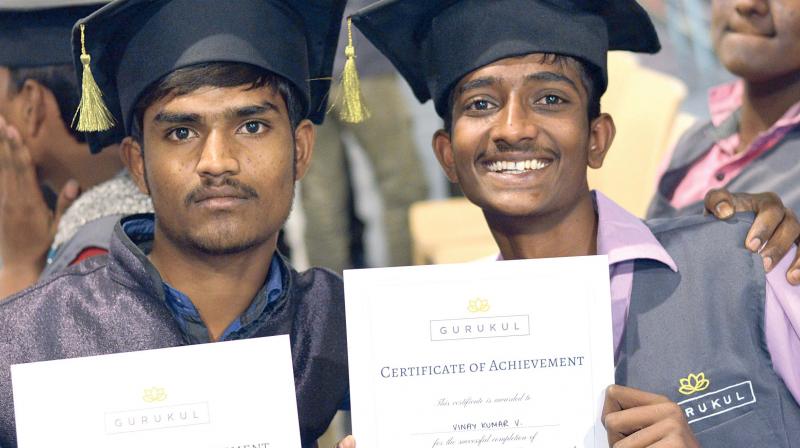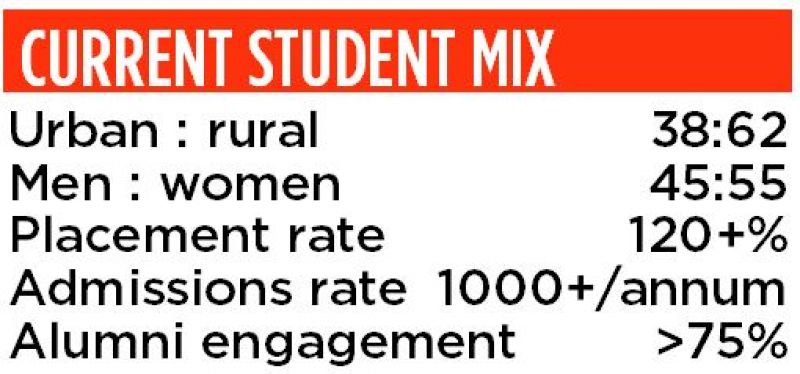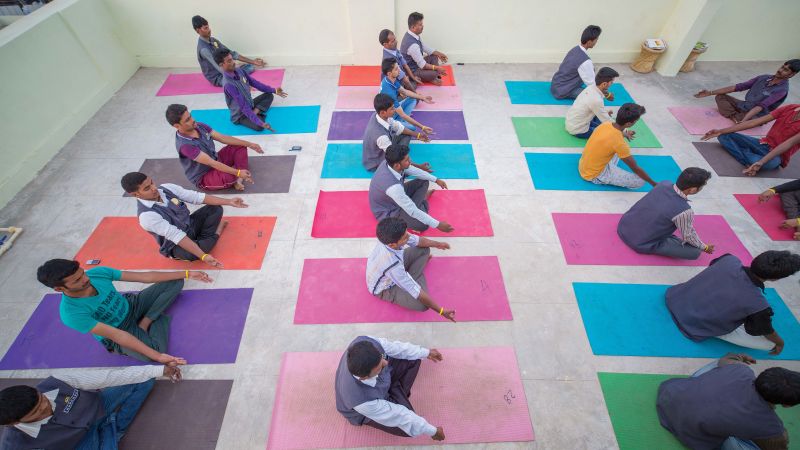70-member team imparts skills to youth; It takes a nudge to kill poverty
The team's focus is on building skills, though many other organisations too are working in this direction.

Bengaluru: Sometimes a nudge is all that we need, and it was powerful enough to spur Atul Satija to form The/Nudge Foundation. Founded in July 2015, The/Nudge, a non-profit startup, has come a long way. “We are a team of over 70 people and the idea is to alleviate poverty, sustainably and scaleably. In simpler words, getting youth out of poverty in a sustainable manner," says Atul, Founder and CEO of the foundation.
His team's flagship initiative, Gurukul, focuses on this very thing. “The growing Indian economy, with a 400 million skill-deficit, provides the real opportunity for them to escape the cycle of poverty through gainful employment. But imparting hard skills training alone is proving to be insufficient, so Gurukul provides a strong 360-degree life, learning, and economic foundations through a 100-day fully-residential programme," he explains. This is an initiative by some of India's brightest minds coming together to tackle the greatest human problem – poverty.
The team under the Gurukul Foundation works under three parameters – opportunities to learn, tools to learn and mentality to learn. “The Life Foundation builds the right mentality and values in them to succeed in life. Learning Foundation builds the toolset (digital and financial literacy and English) for a career. The Livelihood Foundation builds the skill for their first job and supports our trained students and we maintain 100% placement for our students. Our alumni get lifelong support via life/guard programme to prevent them from falling back into poverty. With this comprehensive product, we aim to keep our students and their families out of poverty through their life time,” he says.
The team's focus is on building skills, though many other organisations too are working in this direction. “There are significant government and CSR focus on skilling, but majority of the existing initiatives focus heavily on hard skills and do not address the lack of employability and life-skills, resulting in high attrition and low productivity. Also, for the underprivileged to progress in their careers and earn better wages, they need to have foundational learning along with a mindset to learn, necessitating the need for English literacy, numeracy, digital and financial literacy," he says. While hard skills are critical, the absence of life skills and learning skills hinders the underprivileged youth to adequately meet the needs of the economy as well as pulling them sustainably out of poverty, he stresses.
The foundation supported and trained more than 500 students last year. On its future plans, he says, “We will focus on all work areas in this sector. This could include solving the migration support the youth need when they move from one place to another for a job, fixing a single currency as the only measurement for measuring the impact we have created, creating pride in skilling and understanding and creating programmes according to the aspirations of the youth we work with. For 2017, we are aiming to scale up our operations to more than 5,000 students per year. We are also working towards creating a large-scale campus that can accommodate and train thousands of youth at any given time."
The team's focus, however, is to work according to the aspiration levels of different groups of people. “Youth from different areas have different aspiration levels. Those from rural pockets would have different aspirations from the youth of urban Karnataka,” Atul sums up.



